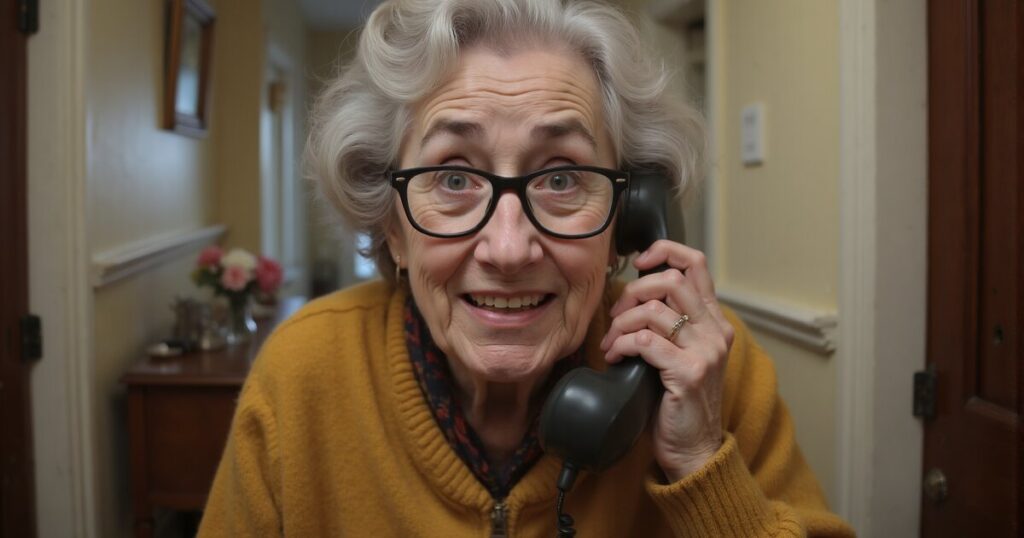In a clever blend of technology and tradition, Virgin Media O2 has unveiled Daisy—an AI-generated grandma designed to bait and baffle phone scammers. Serving as a virtual shield, Daisy engages with fraudsters so real people won’t have to.
Launched on November 14, Daisy has already navigated over 1,000 scam calls, investing up to 40 minutes on the longest calls. By feigning tech ineptitude and recounting nostalgic tales about her grandchildren, Daisy effectively turns the tables on scammers, leaving them exasperated.
“Daisy is our new ace in the fraud-prevention team, outsmarting crooks by keeping them talking, not conniving,” explained Murray Mackenzie, the director of fraud at Virgin Media O2. Essentially, Daisy operates through a sophisticated AI language model personified as a grandmother. The system listens, converts the spoken words to text, retrieves a suitable response from its database, and then vocalizes it in Daisy’s grandmotherly tone—all within moments and without human intervention.
Virgin Media O2 collaborated with former scammers to fine-tune Daisy’s database using a strategy called “number seeding.” This involved strategically placing Daisy’s number on scam target lists, making her an unsolicited guest to these unwanted calls. By doing so, Daisy has the luxury of time to consume scammers’ hours.
Beyond the amusement it provides, Daisy is a cautionary emblem for consumers, reminding them to scrutinize who they engage with on the phone. “Daisy serves as a stark reminder that voices of persuasion might not be who they claim,” Mackenzie pointed out.
The initiative comes at a crucial time, as Virgin Media O2’s research found that a staggering 69% of Brits have faced scam attempts, with the company thwarting over £250 million in potential fraudulent transactions just last year. Rob Orr, the COO of Virgin Media O2, emphasized the scale of the issue: “Fraud has reached epidemic proportions, with organized fraudsters operating high-tech call centers, relentlessly pursuing Brits 24/7.”
In the United States, the problem persists on a massive scale too. As per TrueCaller, a service known for caller identification and blocking, Americans are bombarded with about 2.9 billion spam calls monthly—roughly eight per user. Although there isn’t a Daisy equivalent yet, many U.S. phone companies offer call screening software to flag likely scams.
In a parallel move, on November 13, Google announced an AI enhancement to its Pixel phones that listens to calls, alerting users to scam-like dialogues, such as urgent money requests or demands for logins and bank details.
As technology continues to evolve, so do the tactics of scammers. The most effective defense consumers can cultivate is vigilance. “When shopping online, checking emails, or receiving unexpected calls, always remain cautious,” advised an O2 spokesperson. “We never request full passwords, one-time codes, or bank details over the phone, so any such call is a clear fraud attempt. Always verify links, and remember, if it sounds too good to be true, it usually is.”


